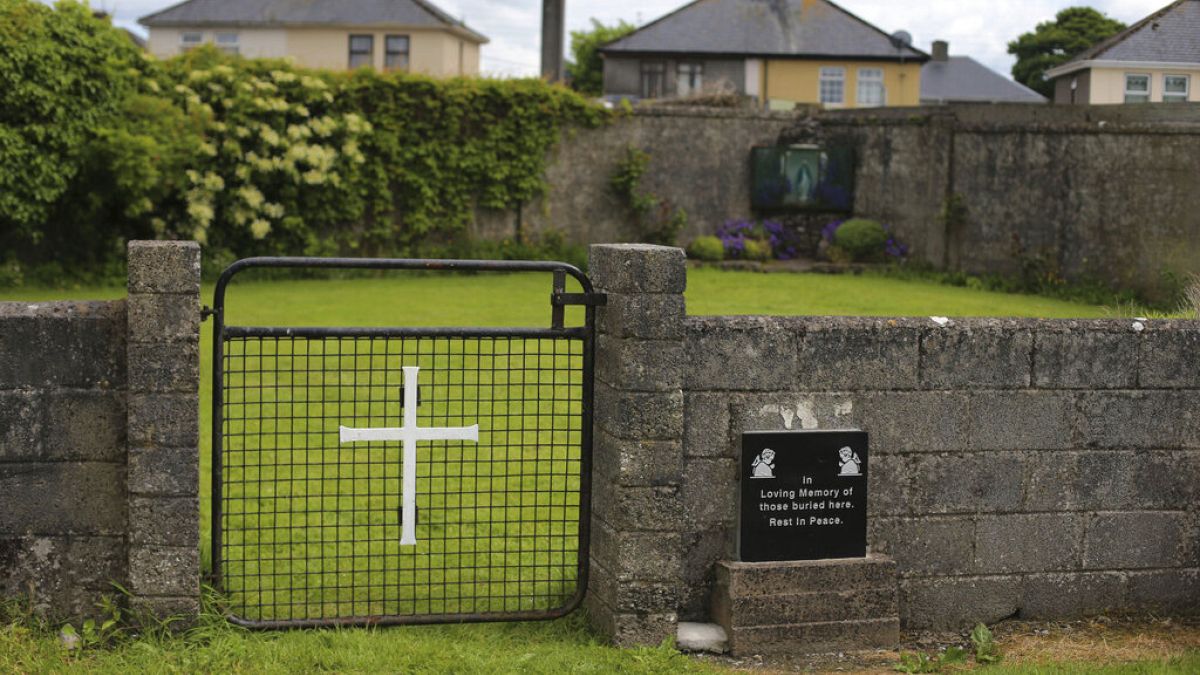Irish officials have hailed the legislation as a landmark step towards making amends for a long, dark chapter in the country's history.
In the early hours of Monday this week, US resident Alan Bigger submitted the last of his details into a new online tracing system for adoptees from Ireland.
Passed in June, the legislation allows adopted people automatic access to early life records, including birth certificates, for the first time.
Close relatives can also access information about children who died in the institutions or documents after a parent has died.
Bigger, who was adopted in the early 1950s, wanted to be one of the first to take advantage of the scheme.
But the retired university facilities director said he was entering into the process with some anxiety.
Previous attempts to find out about his early years had seen him pass from pillar to post.
"There's a degree of fear of the unknown. You know, sometimes they say it's better to let sleeping dogs lie," Bigger, 73, told AFP news agency.
"But my hope would be to get the pieces of information that fill in the gaps that I have."
The online system is part of Ireland's Information and Tracing Act. Irish officials have hailed the legislation as a landmark step towards making amends for a long, dark chapter in the country's history.
At a time when the Catholic Church held huge sway, unmarried women and girls were sent to oppressive "mother and baby homes" often run by religious orders, and forced to give up their children.
A 2021 commission found that 9,000 children, or 15% of the approximately 57,000 children admitted, died at the homes between 1922 and 1998.
Ireland has seen decades of bitter debate weighing the rights of adoptees to know about their past and the privacy of the families involved.
'She had no option'
Bigger, who grew up with his adoptive family in Dublin and has lived in the United States for most of his adult life, started his own search in 2009.
He knows he was born in a workhouse in Belfast after his biological mother had an affair with a younger man in conservative 1940s Northern Ireland.
He has seen documentation explaining that he was adopted in the Republic of Ireland in 1951 under a process that would not become legal until two years later.
But after being born in British-run Northern Ireland, he has seen no records explaining how he came to be in the Republic nor about his mother's condition when she gave him up for adoption.
"She probably had no other option... to starve to death or go back to her husband," he said.
"This is a sort of a thing with no closure," he added, explaining that he hopes documents available under the new legislation may hold answers.
Ireland's Child and Family Agency and the Adoption Authority of Ireland (AAI) are handling the online requests for information under the new law.
The AAI estimates that some 100,000 individuals in Ireland and around the world will be affected.
The law also allows adoptees, birth parents and their families to register contact tracing preferences.
Records date back to Ireland's founding as an independent state 100 years ago.
Since 1953, the AAI has said 50,000 people were adopted legally in Ireland and, like Bigger, some 20,000 were sent overseas in a process known as "boarding out".
But Claire McGettrick, co-founder of the Adoption Rights Alliance, said that far from being the landmark legislation promised by the government, the bill continues to exclude some individuals.
"We envisage that many, many records will be withheld from people," she said.
McGettrick said the state had created a narrative of "shame and secrecy" around the issue which endured in its handling of adoptees.
"Even as they're claiming to address that issue of shame, they're reinforcing it through legislation like this," she said.
"It's been always been about the state protecting itself and limiting liability," McGettrick added.
The Irish government, though, maintains that the legislation gives transparency and clarity to individuals looking for records.
Children's Minister Roderic O'Gorman said people "can with certainty and confidence access what is rightfully theirs".
AAI chief executive Patricia Carey said the start of the tracing services was "historic" and would provide "thousands of adopted people with information that they've wanted for a very long time".
